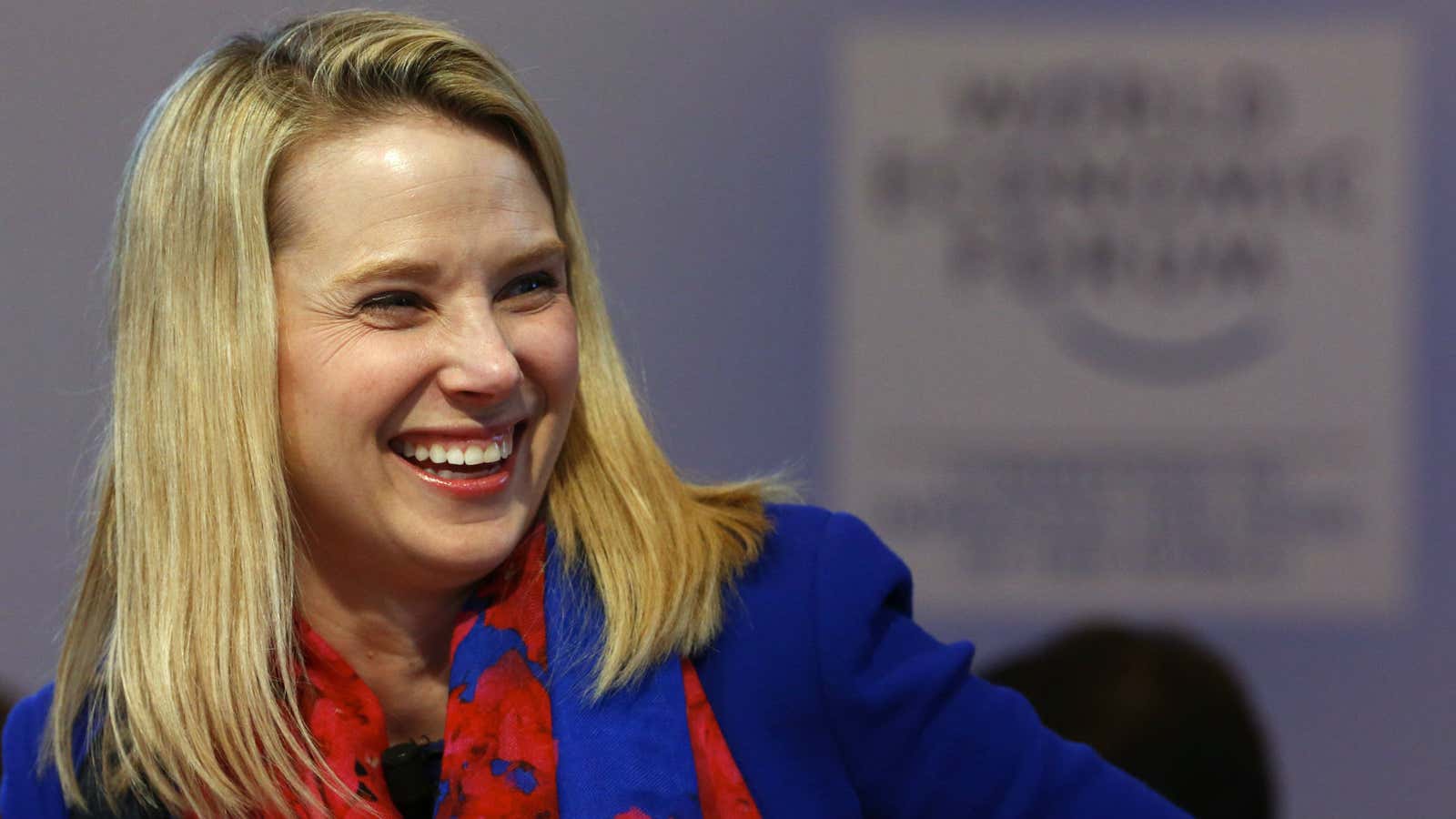Yahoo CEO Marissa Mayer pulled off quite a coup today: Yahoo and Microsoft agreed to amend a contentious deal over search advertising. It sounds incredibly boring—even shareholders seemed not to take notice—but it’s a rather significant development.
The 10-year deal was signed back in 2009 and was meant to help the two companies compete with Google. It obviously didn’t work, as Google has since extended its lead in search, and now looks unassailable.
Mayer has been trying to get out of the pact for quite some time, because Microsoft’s Bing technology has powered search on Yahoo’s desktop properties as part of the arrangement—which has meant that Yahoo has had no control over the search process on its websites, including the ads placed against searches.
Now that’s been restructured. Under the amended deal, Yahoo will have greater flexibility to do as it pleases with about half of its search traffic.
Already there is speculation the company will try and strike a deal to outsource the rest of its search traffic to Google. Well-sourced Yahoo watcher Nicholas Carlson of Business Insider thinks doing so could be worth as much as $1 billion to Yahoo. One potential obstacle is that regulators previously opposed a proposed advertising deal between the two companies. That was back in 2008, though; whether the US government would have the same antitrust concerns today is unclear.
Yahoo could perhaps go it alone, and potentially make even more money from search traffic.
But there might be another, more interesting option. Macquarie Securities analyst Ben Schachter thinks Mayer could, or at least maybe should, try landing some form of search advertising deal with Facebook, and said as much in a note today to clients:
While the press and others will likely discuss the potential for a Google/Yahoo search partnership, we think that investors should be thinking about the potential for a Facebook/Yahoo partnership. Facebook has been emphatic that they are still pursuing search…
It’s a provocative thought. For years, Facebook CEO Mark Zuckerberg has been talking about bolstering his company’s search capability. Facebook has troves of unique data on users, and relationships with some 2 million advertisers, to whom it could offer personalized, sponsored search results.
“It makes a lot of sense for Yahoo to become Facebook’s first major ad distribution partner, via search (and potentially display),” Schachter argues in his note. No word as to whether the companies agree; Yahoo said it does not comment on rumors and speculation, and Facebook hasn’t responded to a request for comment.
Schachter tells Quartz that Facebook could be one of many partners Yahoo could use in search.
How such an arrangement would actually work is beyond our pay grade. But it certainly is a fascinating prospect.
In any case, Mayer has signaled ambitions to compete in search technology again; now that Yahoo has amended its deal with Microsoft, she might have just gotten her opportunity.
